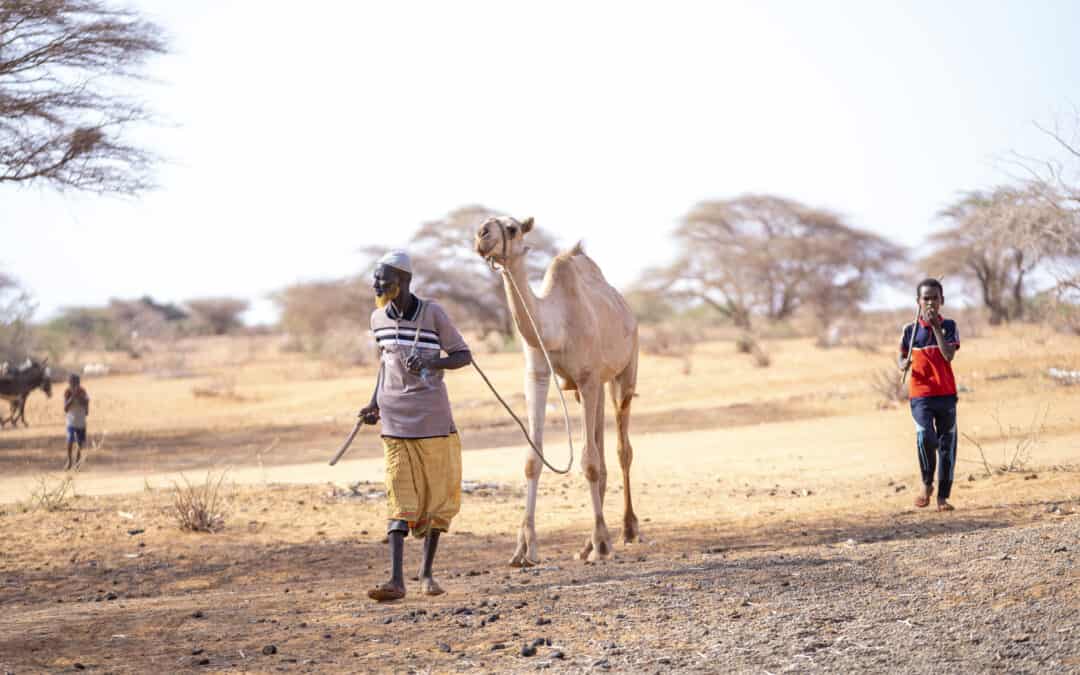The still young year is to be all about camelids. This was decided by the United Nations. The aim is to raise awareness of how important camelids are for the livelihoods of many people – and will become even more important in the future in view of the rapid progression of climate change.
“Recognizing the vital role that camelids play in the livelihoods of millions of families”. This is how the United Nations declaration begins. In the Horn of Africa, dromedaries are the representatives of the camelid family. As one of the first domesticated animals in West and East Africa, these remarkable giants have a profound significance there. Due to their versatility and resilience, they are an integral part of the cultural identity of many communities who have lived and worked with them since time immemorial.
Camels as a livelihood
Today, camels play a key role in coping with the effects of climate change. A large part of the population in the Horn of Africa lives in nomadic communities. Due to the more frequent droughts caused by climate change, these communities are increasingly struggling to conserve their resources. Cattle, sheep and goats are the first to die during a drought. Camels, on the other hand, are content to eat thorny desert vegetation and can survive for weeks without water. The robust farm animals therefore always remain at the side of the communities.
Valuable milk
The valuable milk of the camels is rich in vitamins and minerals and can cover more than half of the daily calorie requirements of many herding families. They are therefore indispensable for nomadic communities. In these contexts, camels are fundamental to the food security of entire population groups. The camel population in West and East African countries is steadily increasing and already numbers more than 10 million animals.
A promising solution
The promotion of camel husbandry makes a major contribution to achieving the development goals of the United Nations. The International Year of the Camelid 2024 aims to raise awareness of the potential of camelids and calls for more investment in this sector. In its projects in Kenya and Ethiopia, VSF-Suisse has been promoting camel husbandry as a more climate-resilient alternative to cattle farming for many years and is committed to raising awareness of these wonderful animals.
Statement from civil society
In view of the International Year of the Camelid, VSF-Suisse has contributed to a civil society statement. The statement calls on governments, scientists, donor organizations, local and regional decision-makers, experts and the private sector to support development efforts that take into account the special ecological and cultural aspects of camelids. The statement was issued at the FAO Global Conference on Sustainable Livestock Transformation in Rome in September 2023.

Intern Communication
Contact for media
Philipp Hayoz, Communications Manager: philipp.hayoz@vsf-suisse.org / 031 332 77 68



